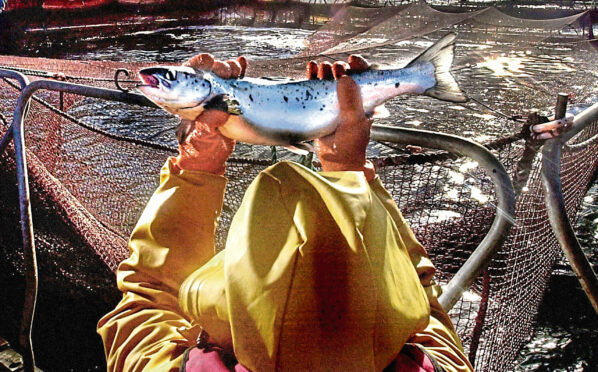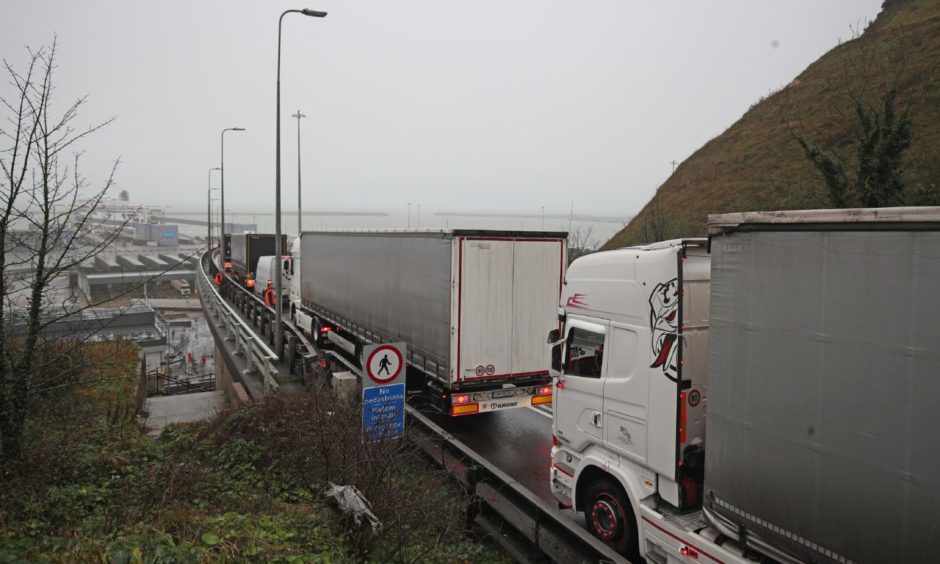Scottish fishing chiefs are waiting to see the finer print of the UK-EU trade deal in terms of what it means for their industry after rumours of a major climbdown by the UK Government.
Earlier today, sources suggested the prime minister had agreed to a much smaller cut in the EU’s share of the UK North Sea fishing catch – possibly as low as 25% – than the 60% reduction that he was previously seeking and phased in over more than five years.
Scottish Fishermen’s Federation Elspeth Macdonald has warned that such a deal would be “derisory” and amount to a betrayal of the industry.
Announcing an overall trade deal had been achieved this afternoon, European Commission president Ursula Von der Leyen confirmed Boris Johnson had agreed to five-and-a-half years of “full predictability for fishing communities” in the EU.
The Scottish Salmon Producers Organisation (SSPO) warned the trade deal would mean increased costs and potential disruption to transport for the UK’s biggest food export industry.
In a week of transport chaos, with millions of pounds of losses caused by border disruption between the UK and continental Europe, SSPO chief executive Tavish Scott said: “We are pleased the negotiators have at last secured a deal.
“This will alleviate some of the serious problems that would come from a ‘no deal’ Brexit.
“But we still have concerns. The disruption at the Channel right now is hitting our members’ ability to export.
“Brexit means the Scottish salmon sector now faces the reality of lots more red tape, bureaucracy and paperwork which are the reality of the extra trade barriers which come with Brexit.
“So until we see how this UK-EU agreement actually works in practice, it is impossible to make a clear judgement on how the new trading arrangement in 2021 will affect salmon farming.”
As seen in the last few days, transport disruption on either side of the Channel is resulting in salmon arriving late, or not at all, at the main market in Boulogne-sur-Mer, in France.
Commercially this will result in enforced discounts or lost sales to salmon farming companies.
The seafood sector is also concerned about the new Brexit requirement for tens of thousands of export health certificates (EHCs) from January 1.
Exporters have been assured there will be enough staff to process the extra paperwork but there is still considerable uncertainty as to whether arrangements will work as planned.
The cost of the extra EHCs is expected to be at least £1.3 million to the sector every year.
Mr Scott said: “Salmon farming’s big worry remains the potential for disruption at the Channel.
“Salmon is a perishable product and any delay in getting the fish to our European markets will have serious consequences
“If consignments end up being stuck in queues of traffic for hours, the knock-on effects on eventual market price can be severe.
“That is exactly what we have seen since Sunday – so the omens are not good.
“It is up to the UK Government to now deliver on their numerous promises that Brexit will help the economy. We are all watching.”
Mr Scott said SSPO would be maintaining “daily engagement” with the governments in both Edinburgh and London on the sector’s behalf.
Seafood Scotland chief executive Donna Fordyce said: “Having a deal on the table at long last comes as a welcome relief to the Scottish seafood sector, which relies heavily on exports. In particular, tariff-free trade is a huge benefit.
“However, this is a two-sided deal. Over the last few days we’ve seen the utter chaos that disruption at the border causes.
“With Brexit will come new, untested, and extremely complex processes that the seafood sector will have to comply with in just a week’s time, at huge cost which it can ill afford just now.
“This bureaucratic blockade will result in some lorries not making it to Europe in time to ensure their highly perishable cargo is saleable. ”
Ms Fordyce added: “We expect it to be a good few months until everything beds in and in the meantime seafood businesses will try their best to navigate the changes, but some will not survive.”
Meanwhile, Melissa Moore, head of UK policy at international conservation group Oceana, said: “After months of tough and complex negotiations, it is welcome news that the EU and the UK have reached an agreement on fisheries, as our shared ecosystem needs a joint approach to management.
“The devil is now in the detail of the agreement and whether they have agreed to set catch limits in line with scientific advice and not undermine international law.
“Who gets the largest slice of the fish pie will soon become irrelevant if stocks are further overfished.”

